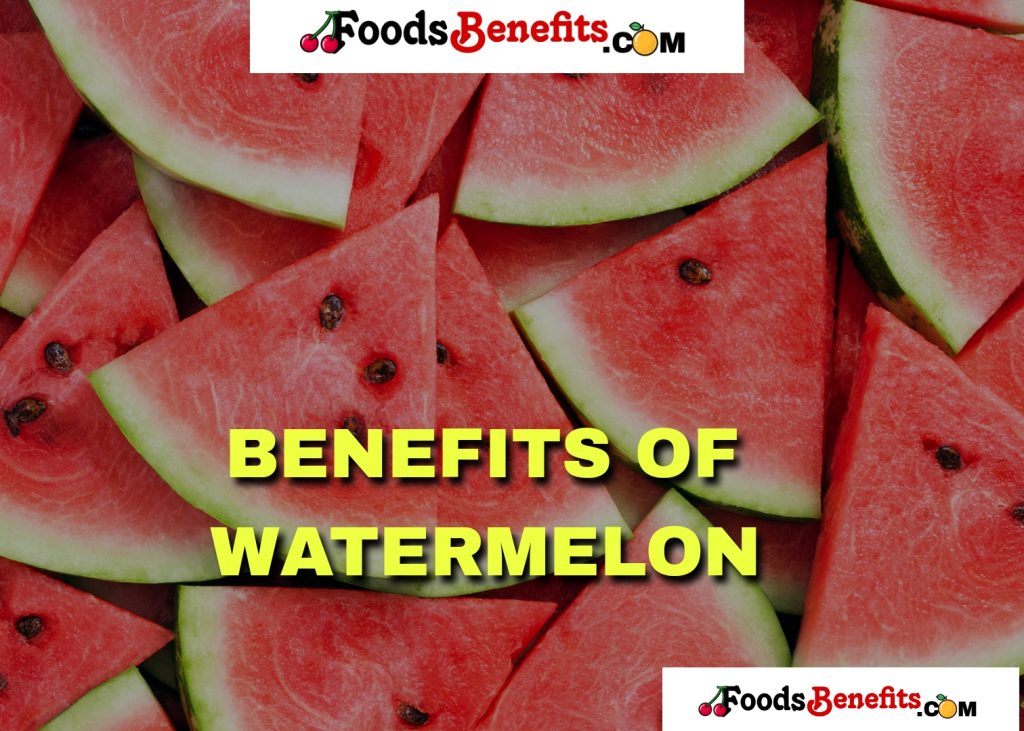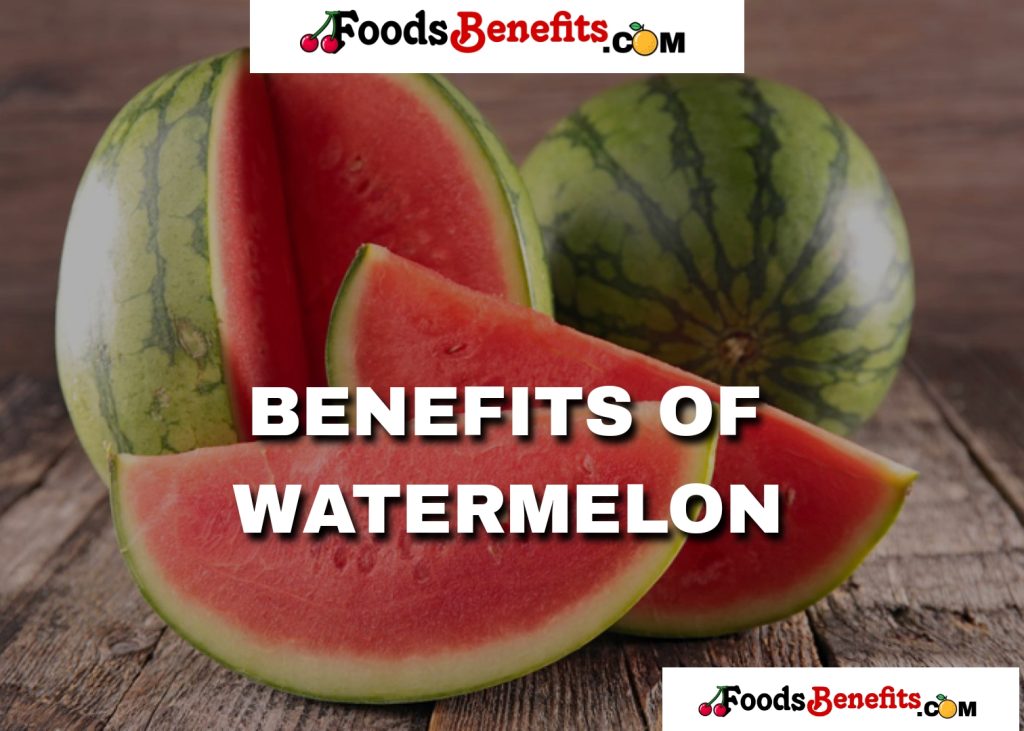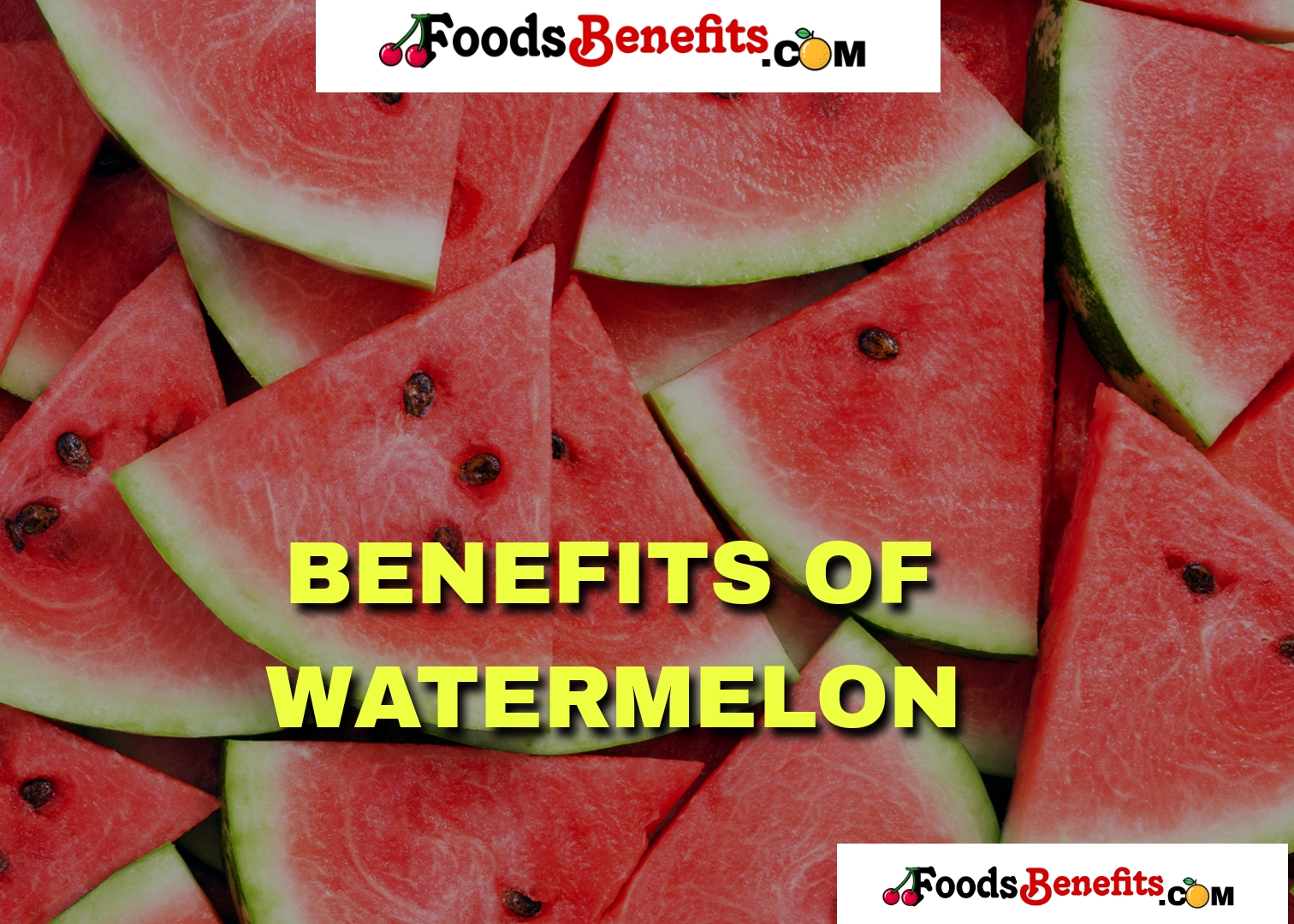The Incredible Benefits of Watermelon: A Nutritional Powerhouse
Loosely speaking, watermelon is not just a fun summer fruit but much more. Hydrating and packed full of nutrients this juicy little snack has numerous health benefits that are unrecognized. It helps maintain heart health, digestive health, and the immune system, and it is full of vitamins and minerals that any balanced diet should include. In this article, readers will learn about the many advantages of eating watermelons and why it is essential to include them in your daily diet. You can know Benefits of Watermelon through the article.
Benefits of Watermelon: in Hydration
First, watermelon is as the name suggests because it is composed of about 90% water. This makes it one of the best foods that you can take in as far as hydration is concerned. Water is also necessary for some significant functions of the body such as temperature control, nutrient transport and organ function.
Yes, we need to drink water, but what you also need is water-rich foods such as watermelon, to help replenish the fluids in our body especially on hot and sunny days and after exercising. It is also rich in natural sugars that replenish energy thus making it the ideal food for replacement of water.

Packed with Essential Nutrients
As much as watermelon is water, it contains a good proportion of fat and minerals essential for a healthy body. A cup of diced watermelon (about 150 grams) provides: A cup of diced watermelon (about 150 grams) provides:
Vitamin C: More than 10% and up to 21% of the daily recommended intake of vitamin C, its effect is to enhance the immune system and also improve skin status.
Vitamin A: 18 per cent daily required allowance for Vitamin A, good for the eyes and the skin.
Vitamin B6: This vitamin is important in the support of the brain and the proper formation of red blood cells.
Potassium: Aids in the process of maintaining high blood pressure and also plays a function in muscle and nerve control.
Magnesium: Helps to improve bone density, heart condition and immune system of the body.
These nutrients help further serve several body functions and improve well-being in the process.
Benefits of Watermelon : Boosts Heart Health
The natural chemical in tomato which is naturally red is known as lycopene and watermelon contains it. Lycopene has been reported as being beneficial to the heart by reducing cholesterol levels and regulating blood pressure levels. It encourages the oxygen-based transport of nutrients to the cell, protects the cell from damage and could decrease the chances of heart disease.
In some research, it was shown that persons, who consume foods rich with lycopene, have less incidence of heart diseases. Another nutrient present in watermelon that is thought to open up the blood vessels and, thus help lower blood pressure is citrulline. Citrulline is then transformed into Arginine and the latter assists in the synthesis of Nitric Oxide that dilates the blood vessels thus enhancing blood flow.
Aids in Digestion
Hence, watermelon which is low in fibre is useful in digestion. It is rich in water so much so that it makes sure the areas of digestion have enough water not to engage in things like constipation or to make bowel movements happen. Besides, it has only a small part of dietary fibre that also plays a role in the overall health of the gastrointestinal tract.
Other sugars present in Watermelon are easily digested to make room for more friendly anaerobic bacteria hence improving digestion.
Supports Weight Loss
In this case, if you want to embrace what we can call the watermelon diet or embark on a weight loss exercise whereby you want to get that perfect size and weight; then you will find watermelon as being very useful to you. It is low in calories – approximately 46 calories per cup and this makes it easy for the body to engulf as a snack without having to add on the body size in terms of calories.
Watermelon has a large portion of water content which will make you have a full stomach hence it can be used to prevent overeating. This is because watermelon is very rich in sugars thus making it an ideal snack that can easily replace the desire for sweets, candy and other unhealthy snacks that are high in sugar.
Also Read : The Benefits of Jackfruit. Benefits and Nutrition
Promotes Skin and Hair Health
Watermelon contains vitamin C which is essential in the synthesis of collagen and thus good for the skin. Vitamin b3 is used to make collagen that gives your skin a shape or structure as well as strength. It also gives the skin strength, firmness, and elasticity to meet the fine lines and wrinkles that come with age.
The other nutrient found in watermelon is vitamin A which helps the skin by leading to the production of skin tissues and cell replacement. Lack of vitamin A results in skin problems such as dryness and the formation of scaly skin. If you develop a habit of taking watermelon frequently its effects on your skin are that your skin will be moist.
Besides, the compounds in the watermelons offer the skin a guard against the harm that might be occasioned by the UV light emitting sun and other pollutants. But for hair health, the vitamin C in the watermelon enhances the absorption of iron which is vital for hair development.
Reduces Muscle Soreness
The fruit also reduces muscle soreness after activity if you are among those who experience the problem after exercising. That’s also why the amino acid citrulline, which is found in watermelon, helps prevent muscle soreness while exercising. Citrulline makes muscles receive more of the oxygen and nutrition that is needed for muscle rebuilding.
Experiments have been conducted, which demonstrated that people who consumed watermelon juice before vigorous exertion, felt less pain in their muscles when they were done exercising. This makes watermelon an ideal fruit to be taken after working out, especially by athletes and people who exercise.
Improves Eye Health
Vitamin A is very important to our eyes and we get this vitamin from foods containing beta-carotene and watermelon has this nutrient. Vitamin A, on the other hand, assists in the protection of the outer layer of the eye and avoids diseases like night blindness and macular degeneration which is a common eye ailment amongst the aged.
The antioxidant compound Lycopene which is found in watermelon also offers protection to the eyes against orbital inflammation which may lead to eye diseases at a later date.
Also Read : Amazing Health Benefits of Banana
May Help Prevent Cancer
It turns out that lycopene is once again all but reached for the title of ‘star cancer fighter’. Because lycopene has active anti-oxidative properties on the human body, it lowers the probability of new cancer formations, especially for the digestive organs and glands, including the prostate gland, stomach gland, colon gland, and so on.
But like all melons, watermelon contains another plant enzyme known as cucurbitacin E which also has anti-inflammatory effects. An investigation has been carried out on Cucurbitacin E regarding its ability to control the growth of cancer cells.
Although no proven food can prevent cancer, watermelon is one of the fruits that contain many nutrients that can reduce the risks of cancer when eaten by fruits and vegetables.

Supports Kidney Health
Other minerals and fruits such as watermelon for instance are natural diuretics, meaning that they facilitate the production of urine without stressing the kidneys. This can be good for anyone who has problems with the kidney or those who wish to avoid the formation of kidney stones. The high-water content in the fruits aids in checking the growth of toxins in the body and potassium also decreases the accumulation of uric acid that leads to the formation of kidney stones.
Though, it is stated for those with advanced kidney disease, it is advisable to talk to the doctor before taking plenty of potassium-containing foods and watermelon is among these foods.
Helps Reduce Inflammation
Numerous health disorders are associated with chronic inflammation and these include; cardiovascular diseases, diabetes and arthritis. Some of watermelon’s key nutrients include Vitamin C, Lycopene, and cucurbitacin E which have anti-inflammatory properties since they will reduce the level of inflammation by neutralizing free radicals in the body.
These compounds can help in the reduction of Oxidative Stress, and inflammation as well as offering protection to the cells. Drinking watermelon regularly may also decrease the levels of inflammation in our body which can lead to generally improved health.
Enhances Brain Function
Choline is a nutrient that is of great importance in regards to the development of the brain and its functions and watermelon is a rich source of it. Choline plays a role in the functioning of the brain in memory, mood and muscle control. It also helps to preserve the stability of the cell membranes as well as contributes to the function of the nervous system.
Furthermore, watermelon contains a high amount of water in it and it needs no reminding that the brain is reliant on water for its functioning. The effects of dehydration include concentration, headache and general poor cognitive performance.
Aids in Regulation of blood sugar
Still, watermelon has a moderate glycemic index (GI) and a low glycemic load (GL), which makes the fruit practically nonglycemic when consumed in moderate portions. Which makes it an ideal low-risk, cool option for people with diabetes.
It is suggested that watermelons have a low glycemic index as the fibre in the fruit reduces the rate of sugar absorption into the body and the high amount of water in the fruit also moderates the natural sugar content thereby avoiding the increase in the level of sugar in the blood. But the portion control will help the patient control the blood sugar level in the body.
Supports Bone Health. Benefits of Watermelon
Watermelon is rich in vitamin C, potassium, and magnesium and all these nutrients are important for bone health. Vitamin C-based product is required in the synthesis of collagen which is a component of bone matrix. Potassium aids in reducing the acid content of the body, which can help maintain calcium and other minerals that are needed to deliver strength to bones.
Moreover, this compound has been discovered to help in increasing bone mineral density since it also lowers oxidative stress that leads to bone loss.
Reduces chances of Asthma Developing
It was pointed out also that some research work has shown that the consumption of watermelon may reduce the probability of an individual contracting asthma. This is most probably because vitamin C which is present in high quantities in kiwifruits has a role to play in decreasing inflammation in the respiratory tracts and increasing immunity.
However, more studies are required, yet incorporating vitamin C foods such as watermelon in daily meals can reduce the risk of asthma and other respiratory diseases.
Conclusion
Many people consider watermelon as only a delicious fruit of hot summer, but it is much more. Thus, this article makes it clear that this wonderful fruit known for its health benefits such as enhancing the body’s hydration, enhancing the health of the heart and reducing inflammation should be part of our daily diet. Their eating has benefits such as reducing digestion problems, enhancing skin brightness, and easing body muscle soreness due to workouts among other benefits by this nutrient-rich fruit.
Next time when you’re in the grocery shop and you come across a watermelon, do not hesitate to buy it; apart from its sweet and juicy taste, watermelon can provide the body with multiple health benefits.

